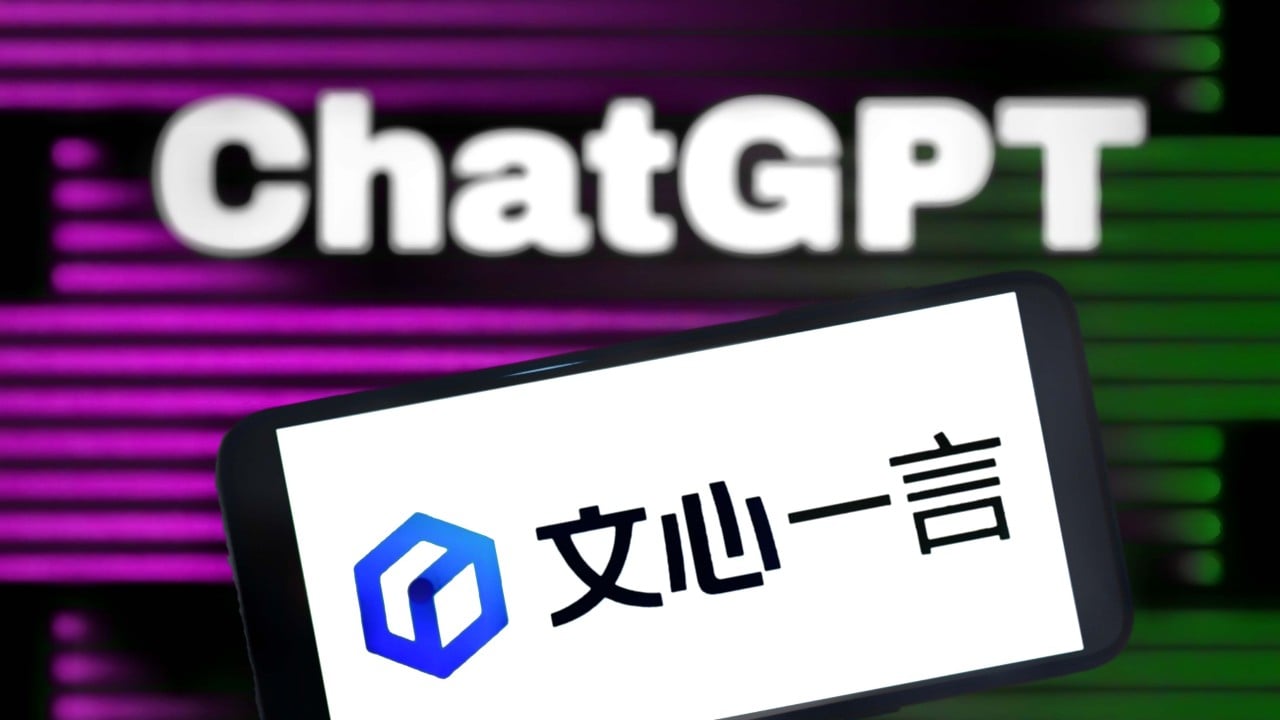
ChatGPT frenzy to lift PC sales as hardware makers from Lenovo to Oppo bet on generative AI, analysts say
- Manufacturers are counting on the rising adoption of generative AI products to spur consumers to upgrade to devices with built-in AI capabilities
- Computers with chips that have built-in AI capabilities are expected to account for 86 per cent of laptops shipped in China in 2027, according to IDC
Shipments of PCs have slowed in the past two years after a wave of pandemic-induced purchases from consumers working from home in 2020 and 2021. The Asia-Pacific PC market – which includes desktop and laptop computers and workstations – is estimated to fall 7.6 per cent this year after a 11.6 per cent slump in 2022.
OpenAI announced this week at its first-ever developer conference that ChatGPT, which was launched just a year ago, now has over 100 million weekly active users globally.
Baidu’s Ernie Bot, launched in March, had amassed over 70 million users in China, said Wang Haifeng, the company’s technology chief, on Thursday at the annual World Internet Conference that took place in the picturesque canal town of Wuzhen, in eastern Zhejiang province.
ChatGPT is officially unavailable in China.
Users have been eagerly experimenting with the latest generation of AI chatbots, which are capable of handling tasks such as summarising long text, drafting emails and work reports, transcribing and translating recordings in various languages, among other functions.
PC makers are working to integrate those capabilities with their products.
Lenovo aims to turn “personal computers” into “personalised computers” with AI technology, vice-president Ablikim Ablimit said at an industry event in Beijing on Thursday.
An AI-powered laptop would be able to create work reports “based on [its learning of] your preference, your historic documents”, Ablimit told an audience at an event held in Beijing on Thursday. But reaching that goal would require the concerted effort of the whole PC and AI sectors, he added.
AI PCs, defined as computers equipped with chips that have built-in AI capabilities, are forecast to account for 86 per cent of the estimated 34 million laptops to be shipped in China in 2027, according to IDC.
Examples of AI-enabled processors include Advanced Micro Devices’ Ryzen Pro 7040 series launched earlier this year, which was described as one of the world’s first x86 processors with an integrated AI engine.
Smartphone makers are also trying to bring AI capabilities to handsets.
The company in August unveiled its proprietary large language model AndesGPT for testing, with the aim of upgrading its voice assistant Xiaobu to improve interactions with users.
Sister brand Vivo also said last month it would add its own AI model into its new operating system OriginOS 4.


